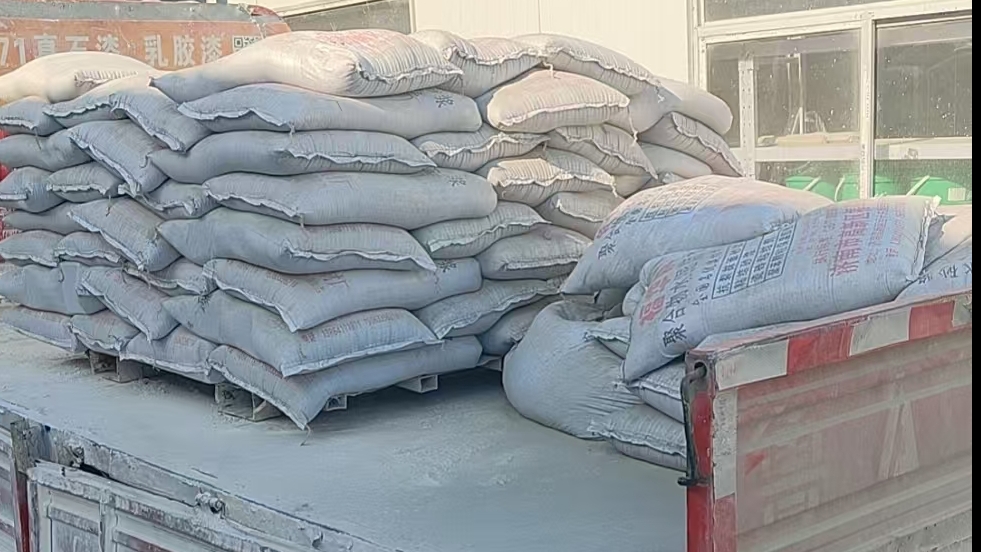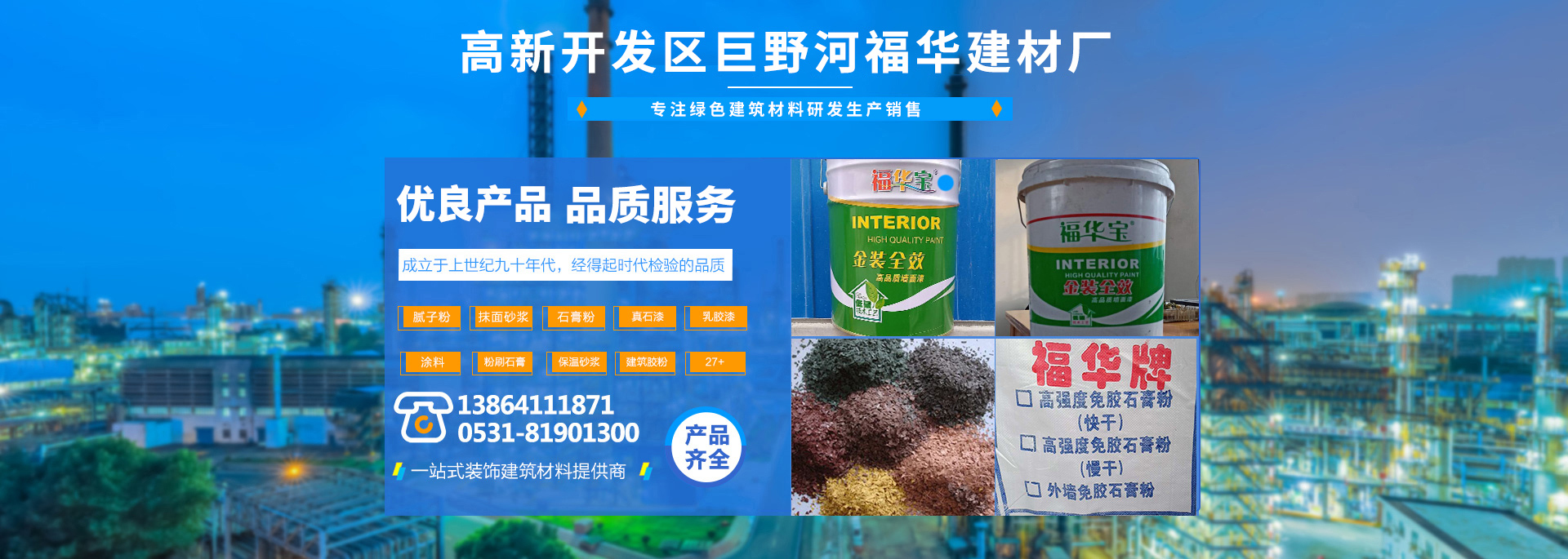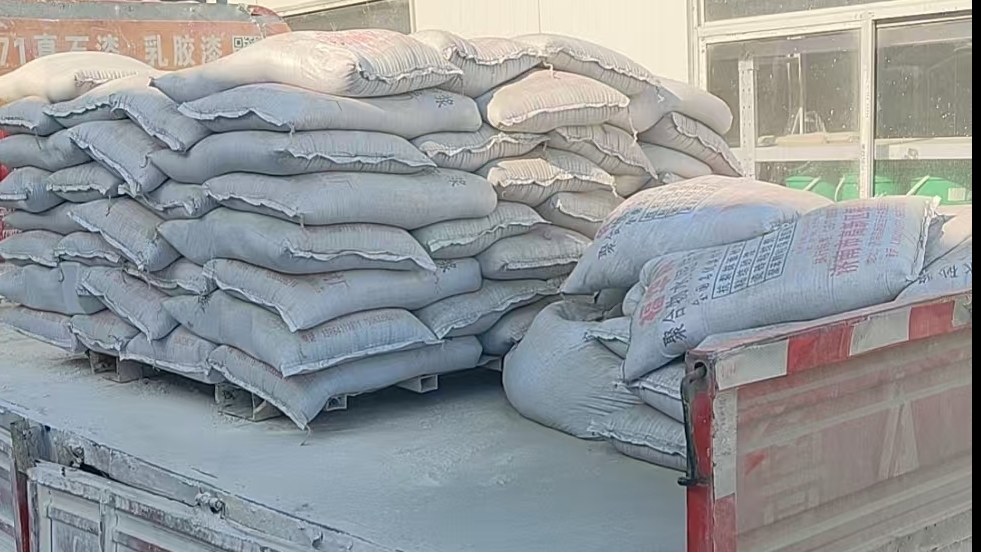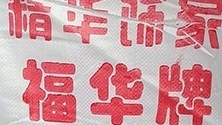石膏粉和膩子粉的區別解析
來源:http://www.laodaohe.cc 日期:2025-07-18 發布人:
膩子粉和石膏粉雖同屬墻面處理材料,但在成分構成、功能用途、性能特點等方面存在明顯差異,了解這些區別能幫助在施工中正確選擇,避免因材料誤用影響墻面質量。
Although putty powder and gypsum powder belong to the same category of wall treatment materials, there are significant differences in their composition, functional use, and performance characteristics. Understanding these differences can help to make the correct choice during construction and avoid the impact of material misuse on wall quality.
成分構成是兩者最根本的區別。膩子粉以碳酸鈣、滑石粉等天然礦物質為主要原料,添加適量黏合劑(如纖維素醚、淀粉醚)調配而成,整體呈現細膩的粉末狀,礦物質占比通常在 90% 以上,化學性質穩定,無明顯的膨脹或收縮特性。石膏粉的主要成分是二水硫酸鈣,由天然石膏礦石經煅燒、磨細加工制成,遇水后會發生化學反應,形成堅硬的結晶結構,這種特性使其具有一定的凝結硬化能力,但也容易受環境濕度影響出現返潮現象。
The composition of the ingredients is the fundamental difference between the two. Putty powder is mainly made of natural minerals such as calcium carbonate and talcum powder, and mixed with appropriate adhesives (such as cellulose ether and starch ether). It presents a fine powder shape as a whole, with mineral content usually above 90%. It has stable chemical properties and no obvious expansion or contraction characteristics. The main component of gypsum powder is calcium sulfate dihydrate, which is made by calcining and grinding natural gypsum ore. When it comes into contact with water, it undergoes a chemical reaction to form a hard crystalline structure. This characteristic gives it a certain degree of coagulation and hardening ability, but it is also susceptible to moisture regain due to environmental humidity.
功能用途各有側重。膩子粉主要用于墻面的精細找平與裝飾打底,適合在墻面基層處理的后期使用。它能填補基層表面的細小孔洞、縫隙,使墻面達到光滑平整的狀態(平整度誤差可控制在 2 毫米以內),為后續涂刷乳膠漆、鋪貼壁紙等裝飾工序提供良好基礎。無論是新房裝修的毛坯墻,還是舊房翻新的墻面修補,膩子粉都能通過多次批刮(通常 2-3 遍)實現細膩的表面效果。石膏粉則多用于墻面的初步找平與造型制作,適合處理基層的較大凹陷、孔洞(深度 5 毫米以上),或制作石膏線條、石膏浮雕等裝飾構件。在墻面基層存在明顯高低差時,石膏粉可通過較厚的涂抹(5-20 毫米)快速填充,利用其硬化后的強度固定基層形態。
Each has its own emphasis on functional purposes. Putty powder is mainly used for fine leveling and decorative priming of walls, and is suitable for use in the later stage of wall base treatment. It can fill the small holes and gaps on the surface of the base layer, making the wall surface smooth and even (the flatness error can be controlled within 2 millimeters), providing a good foundation for subsequent decorative processes such as painting latex paint and laying wallpaper. Whether it is the rough wall of a new house renovation or the wall repair of an old house renovation, putty powder can achieve a delicate surface effect through multiple scraping (usually 2-3 times). Gypsum powder is mainly used for preliminary leveling and shaping of walls, suitable for treating large depressions and holes (with a depth of more than 5 millimeters) in the base layer, or for making decorative components such as gypsum lines and gypsum reliefs. When there is a significant height difference in the base layer of the wall, gypsum powder can be quickly filled with a thick coating (5-20 millimeters), and its hardened strength can be used to fix the shape of the base layer.

性能特點差異顯著。膩子粉的附著力強,與墻面基層(如混凝土、水泥砂漿)結合緊密,干燥后不易脫落,且具有良好的耐水性(優質膩子粉浸泡 24 小時無軟化),適合潮濕環境中的墻面處理,能減少因濕氣滲透導致的鼓包、發霉。其收縮率低(通常≤0.3%),干燥過程中不易出現開裂,能長期保持墻面的平整度。石膏粉硬化速度快(加水攪拌后 30 分鐘至 2 小時即可凝固),初期強度高,但干燥后收縮率較大(可達 1%-3%),容易出現細微裂紋,且耐水性較差(遇水后易軟化潰散),不適合直接用于衛生間、廚房等潮濕區域的墻面,也不宜作為墻面裝飾層的最終材料。
There are significant differences in performance characteristics. Putty powder has strong adhesion and is tightly combined with wall substrates such as concrete and cement mortar. It is not easy to peel off after drying and has good water resistance (high-quality putty powder does not soften after soaking for 24 hours). It is suitable for wall treatment in humid environments and can reduce bulging and mold caused by moisture infiltration. Its shrinkage rate is low (usually ≤ 0.3%), and it is not easy to crack during the drying process, which can maintain the flatness of the wall for a long time. Gypsum powder has a fast hardening speed (it can solidify within 30 minutes to 2 hours after mixing with water), high initial strength, but a large shrinkage rate (up to 1% -3%) after drying, and is prone to fine cracks. It also has poor water resistance (it is easy to soften and disintegrate when in contact with water), and is not suitable for direct use on walls in damp areas such as bathrooms and kitchens, nor as the final material for wall decoration layers.
施工方式與注意事項不同。膩子粉施工時需加適量水攪拌成膏狀,用刮刀均勻批刮在墻面,每遍厚度控制在 1-2 毫米,待上一遍完全干燥(通常 24 小時)后再進行下一遍,避免因層間未干導致后期起泡。施工后需進行打磨(用 240 目以上砂紙),使墻面更加光滑。石膏粉施工時需嚴格控制加水量(水灰比約 1:0.6),攪拌后需在凝固前快速使用(操作時間通常 15-30 分鐘),批刮厚度根據需求調整,較厚時需分層涂抹(每層厚度不超過 10 毫米),防止因內部熱量無法散發導致開裂。凝固后無需精細打磨,主要依靠其自身的硬化強度保持形態。
The construction method and precautions are different. During the construction of putty powder, it is necessary to add an appropriate amount of water and mix it into a paste. Use a scraper to evenly apply it to the wall, with a thickness of 1-2 millimeters per layer. Wait until the previous layer is completely dry (usually 24 hours) before proceeding to the next layer to avoid later foaming caused by incomplete drying between layers. After construction, it is necessary to polish (using sandpaper with a grit of 240 or more) to make the wall surface smoother. During the construction of gypsum powder, it is necessary to strictly control the amount of water added (water cement ratio of about 1:0.6). After mixing, it should be quickly used before solidification (operation time is usually 15-30 minutes). The scraping thickness should be adjusted according to the needs, and if it is thicker, it should be applied in layers (each layer thickness should not exceed 10 millimeters) to prevent cracking due to the inability to dissipate internal heat. After solidification, there is no need for fine polishing, it mainly relies on its own hardening strength to maintain its shape.
在實際應用中,兩者常配合使用:先用石膏粉處理墻面的較大缺陷,完成初步找平;再用膩子粉進行精細找平,形成互補。但需注意,石膏粉表面必須完全干燥(通常需 3-7 天)后才能批刮膩子粉,否則石膏粉中的水分會影響膩子粉的附著力,導致墻面出現分層、脫落。正確區分并合理使用兩者,能充分發揮各自優勢,保障墻面處理的質量與耐久性。
In practical applications, the two are often used in combination: first, use gypsum powder to treat larger defects on the wall surface and complete preliminary leveling; Then use putty powder for fine leveling to form complementarity. However, it should be noted that the surface of gypsum powder must be completely dry (usually 3-7 days) before applying putty powder, otherwise the moisture in the gypsum powder will affect the adhesion of the putty powder, leading to wall delamination and peeling. Correctly distinguishing and reasonably using the two can fully leverage their respective advantages, ensuring the quality and durability of wall treatment.
本文由濟南膩子粉友情奉獻.更多有關的知識請點擊:http://www.laodaohe.cc真誠的態度.為您提供為全面的服務.更多有關的知識我們將會陸續向大家奉獻.敬請期待.
This article is a friendly contribution from Jinan gypsum powder For more information, please click: http://www.laodaohe.cc Sincere attitude To provide you with comprehensive services We will gradually contribute more relevant knowledge to everyone Coming soon.
 主站蜘蛛池模板:
俄罗斯老熟妇色xxxx|
亚洲国产精品狼友在线观看|
嫩草亚洲小泬久久夂|
一本色道久久88综合日韩精品|
久久精品6|
亚洲激情一区二区|
国产乱妇4p交换乱免费视频|
欧美日韩a|
活大器粗np高h一女多夫|
妻子的秘密波多野结衣|
日韩av在线一区二区三区|
av自拍一区|
99热久re这里只有精品小草|
无码少妇一区二区性色av|
亚洲人av高清无码|
国产av无码久久精品|
精品亚洲国产成人av在线|
国产成人三级一区二区在线观看一|
国产一区二区女内射|
蜜臀av无码一区二区三区|
精品夜夜澡人妻无码av|
免费毛儿一区二区十八岁|
日韩人妻无码一区二区三区久久99|
慈利县|
无码精品人妻|
中文字幕一区二区三区四区五区|
免费观看国产小粉嫩喷水精品午.
国产亚洲色欲色一色www
|
忘忧草日本社区在线播放|
青青国产揄拍视频|
一区二区三区在线 | 欧洲|
国模大尺度啪啪|
色135综合网|
亚洲欧美日韩综合久久久|
安宁市|
制服丝袜在线云霸|
97超碰人人操|
国产精品第七页|
人妻少妇久久中文字幕456|
亚洲欧美日韩中文无线码|
国产一区二区三区久久精品|
亚洲人成色4444在线观看|
主站蜘蛛池模板:
俄罗斯老熟妇色xxxx|
亚洲国产精品狼友在线观看|
嫩草亚洲小泬久久夂|
一本色道久久88综合日韩精品|
久久精品6|
亚洲激情一区二区|
国产乱妇4p交换乱免费视频|
欧美日韩a|
活大器粗np高h一女多夫|
妻子的秘密波多野结衣|
日韩av在线一区二区三区|
av自拍一区|
99热久re这里只有精品小草|
无码少妇一区二区性色av|
亚洲人av高清无码|
国产av无码久久精品|
精品亚洲国产成人av在线|
国产成人三级一区二区在线观看一|
国产一区二区女内射|
蜜臀av无码一区二区三区|
精品夜夜澡人妻无码av|
免费毛儿一区二区十八岁|
日韩人妻无码一区二区三区久久99|
慈利县|
无码精品人妻|
中文字幕一区二区三区四区五区|
免费观看国产小粉嫩喷水精品午.
国产亚洲色欲色一色www
|
忘忧草日本社区在线播放|
青青国产揄拍视频|
一区二区三区在线 | 欧洲|
国模大尺度啪啪|
色135综合网|
亚洲欧美日韩综合久久久|
安宁市|
制服丝袜在线云霸|
97超碰人人操|
国产精品第七页|
人妻少妇久久中文字幕456|
亚洲欧美日韩中文无线码|
国产一区二区三区久久精品|
亚洲人成色4444在线观看|






 魯公網安備
魯公網安備